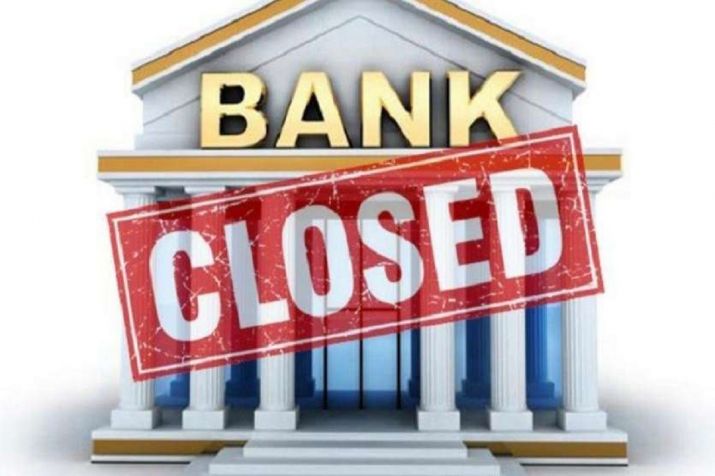Economic crises do not constantly follow bank collapses; however, the recent failings of Silicon Valley Bank and Trademark Financial institutions have pushed economic crisis concerns up a few notches. For retirees, this means extra to worry about the safety and security of their cash. Keeping that in mind, let’s spend some time and assess the financial safeguard you have and those you may not.
Before the Federal Down Payment Insurance Policy Corporation (FDIC) production in 1933, depositors commonly got back just dimes on the buck– if that– when a bank failed. Today the FDIC insures most bank deposits of as much as $250,000. If you have over $250,000, you can get the additional funds covered by opening up an account at a different bank or by opening up various sorts of accounts, such as an individual retirement account (IRA), at the same bank. You can learn how much your deposits are guaranteed through the FDIC’s Electronic Deposit Insurance Estimator.
The banking market funds the FDIC via insurance coverage premiums, which go into the Down payment Insurance Fund (DIF), whose possessions amount to about 1.3 percent of insured deposits. The FDIC also has a $100 billion credit line with the united state Treasury in case losses go beyond the DIF’s assets.
Indeed, banks aren’t the only banks on the planet. Below are some answers to typical inquiries regarding the defenses you have– or do not– in case of economic disasters.
Exactly how shaky is the financial field?
It’s constantly challenging to inform: Banks can carry poor loans on their books for months before offering them off, and it takes complete funding to go wrong. A wave of bad loans might disappoint a bank’s earnings until well after they have gone wrong.
Rising rates of interest can be damaging to bank profits. Silicon Valley Financial institution had a significant portfolio of mortgage-backed protections with meager returns. As the Federal Get pushed the rate of interest up, those protections declined. And as depositors required their money back, the financial institution needed to sell those securities at a loss.
Wall Street has slashed the supply costs of many local banks. In the past month, monetary supplies have fallen concerning 12 percent, and regional bank supplies have actually rolled 31 percent through March 14, according to Morningstar, the Chicago financial investment trackers.
At the very least, the banks’ troubles seem somewhat limited. The Federal Reserve Bank of New York City kept in mind in November that the banking system is well-capitalized, implying that a lot of financial institutions have sufficient books to weather a decline. S & P Global Ratings kept in mind that it has not seen proof that uncontrollable down payment outflows experienced at a couple of banks have widely spread throughout ranked financial institutions.
Are there banks without insurance?
Yes. You can examine to see if the FDIC covers your financial institution by calling the firm’s toll-free number (877-275-3342) or utilizing its online tool. If your bank is uninsured, you should consider moving your money to an insured institution.
Does the FDIC insure savings and loan associations?
Yes. Savings and loan associations (S&P’s) underwent a near-death experience in the 1980s and were guaranteed by the Federal Savings and Loan Insurance Policy Firm. S&P’s are currently entirely covered by the FDIC, with the same insurance policy levels as business banks.
Are lending institutions guaranteed by the FDIC? No. They are guaranteed by the National Cooperative Credit Union Share Insurance Coverage Fund at the exact same level (up to $250,000 in deposits) as FDIC insurance coverage.
Is my safe deposit box federally insured?
No. The components of your safe deposit boxes are not insured by the FDIC for theft or damages or are generally not insured by banks. You can, nonetheless, purchase private insurance for risk-free deposit boxes.
Are individuals who invest directly in a bank insured?
No. If you purchase a bank’s stock, you’re not secured in failure. Bonds are finances, nevertheless, and if you possess a failed bank’s bonds, you may recoup a few of your investments in court.
Is my brokerage account federally insured?
No. The majority of broker agents are insured by the Stocks Investor Defense Firm (SIPC) for up to $500,000 if their brokerage stops working. SIPC insurance consists of as much as $250,000 in defense for cash in your account.
SIPC does not shield you against market losses, nor does it safeguard you against shysters that sell worthless securities. If a brokerage firm stops working and you find that some of your holdings need to be included, SIPC functions to change those holdings at the current market price, which is not necessarily the same as their price when the brokerage fell short.
SIPC does not deal with fights between you and also your broker. That’s the domain name of the Financial Industry Regulatory Authority (FINRA), the United States Stocks, as well as Exchange Compensation or your state safety and securities regulatory authority.
Is my retirement account federally insured?
It depends on exactly how the money in your account is spent.
If an individual retirement account (INDIVIDUAL RETIREMENT ACCOUNT) or a 401( k) strategy includes a bank account such as CDs and cash markets held at an FDIC-covered financial institution, that cash is insured at approximately $250,000 per bank.
However, most retirement accounts are made up of investment possessions such as supplies, bonds, and mutual funds, which the FDIC does not cover. Like basic brokerage firm accounts, those investments may have SIPC protection, with the limits kept in mind.
Is my life insurance policy government guaranteed?
No. Life insurance policy is guaranteed by state guaranty funds, which cover life insurance policy plans and annuities if the insurance provider fails. Laws differ by state, but most offer at least $300,000 in life insurance policy survivor benefits, and long-lasting treatment policies. Annuities are hidden to $250,000.
State warranty swimming pools are funded by the companies that sell policies because of the state. You can discover your state guaranty organization with the National Organization of Life and Medical Insurance Warranty Organizations.
Is my cryptocurrency federally guaranteed?
No. If your crypto gets swiped, there’s no FDIC, charge card company, or financial institution to make you whole. Your money is gone.


